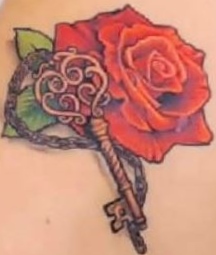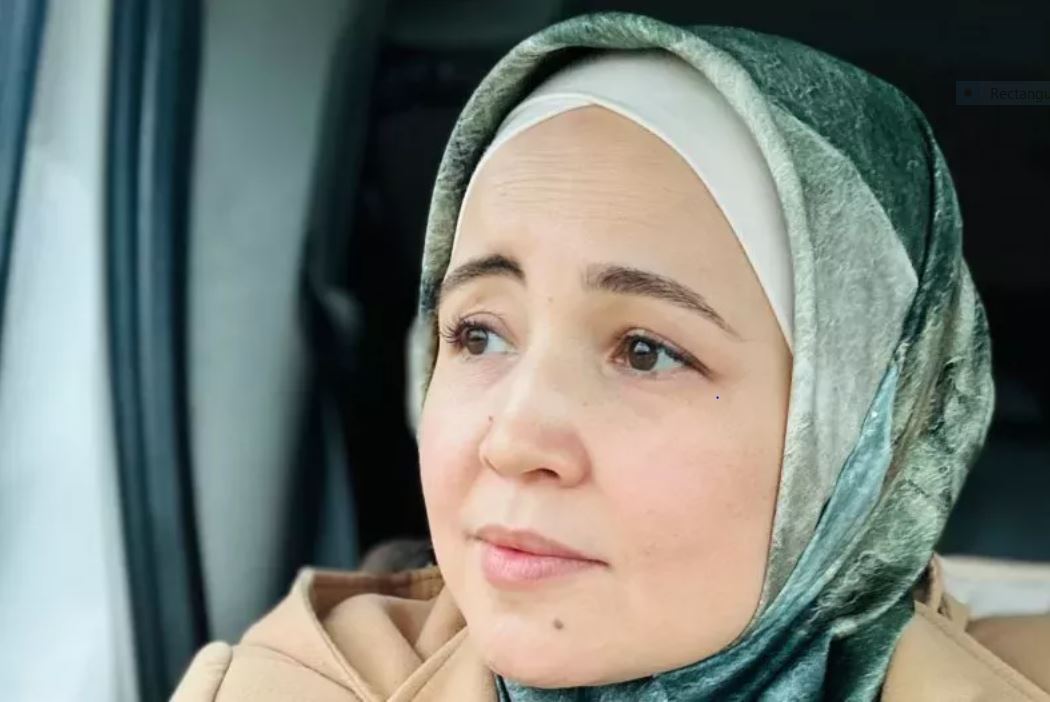Language  |
Beauty & a key
to knowledge |
-
- Wikipedia article on the Crimean Tatar language
text
text
text
text
This is an unusual article for this section. I came to learn about the history of the Crimean Tatars because of my interest in minority languages and I have given a link to the Wikipedia article on their language. However, the bulk of this page is given over to the personal testimony of a member of this people. They have been very badly treated by the Russians in the past and, since the annexation of Crimea in 2014, they have again suffered at the hands of the Russians. They were much happier to live in an independent Ukraine.
This is material from an article published in Newsweek.
I Live in Crimea. I Go to Bed Fully Dressed Expecting Armed Men at Dawn
Published Feb 20, 2024 at 4:00 AM EST. Updated Feb 20, 2024 at 7:04 AM EST.
Lutfiye Zudiyeva, pictured, is a Crimean journalist and human rights activist who has been targeted by the authorities for her work under Russian occupation since the Kremlin annexed the Ukrainian peninsula in 2014.

Photo: COURTESY OF LUTFIYE ZUDIYEVA
I almost always go to bed dressed at my home in Crimea; the expectation that armed men will break into the room at dawn is ingrained in my mind and has changed my daily bedtime routine.You don't just brush your teeth and go to bed, you make sure to charge your phone, your camera, your power bank. You can't turn off your phone, even when you're tired of it, or put it in "sleep mode" for the night, because at any moment there may be a message about another search or detention. And if I get a call at 5 a.m., it almost always means one thing—the FSB or the Russian police have come to someone's house again.
I was born in Uzbekistan, a country that became a temporary—and involuntary—home for Crimean Tatars after Stalin's deportation in 1944. But it could not replace Crimea; the longing for it was always in the eyes of our elders and our parents. There was constant talking about returning to Crimea until it became possible. My father took part in protests and political actions of Crimean Tatars in Uzbekistan and in Moscow. And finally, in 1989, he moved our whole family to Crimea.
In my family, of all those who were deported in 1944, only my grandmother returned home alive. At that time, thousands of Crimean Tatar families left their houses in Uzbekistan en masse and moved to Crimea, like flocks of birds. We settled in the Bakhchisaray district of Crimea, but not in our house. Another family lived there after the deportation, and we only came to see it occasionally. I have rarely left Crimea for more than a few days. I have an invisible inner anchor securely dropped here.
Since my marriage, I have lived in the northernmost town of Crimea, Dzhankoy, which is 200 kilometers from Kherson, a war zone between Russia and Ukraine. Until February 2022, I traveled through this route to Ukraine, keeping in touch with relatives, colleagues and friends who, for fear of reprisals, had been forced to leave Crimea after the Russian intervention. But now even these visits are impossible. Crimea is sinking deeper and deeper into isolation.
Currently, I cooperate with editorial boards and write texts about the trials of political prisoners in Crimea, persecution of civil activists, journalists, lawyers, representatives of independent religious organizations. This is a conscious choice—I do not want the "iron curtain" to fall over these stories. This is my contribution to the restoration of justice.
Before 2014, I had completely different aspirations about my future. In 2010, already having two children, I graduated from a pedagogical university and started working in education. I was expecting one more child when the so-called "polite people" or "little green men", who were actually Russian army special forces, entered Crimea. My first personal acquaintance with them was in the courtyard of the maternity hospital in Dzhankoy, which they surrounded on the perimeter and negotiated with the hospital management.
Islyam was born on March 28, 2014, two weeks after the "referendum". There was an unfortunate and flat joke at the hospital: All previous children were citizens of Ukraine, and this one was born in Russia. For my family, which had lost a lot because of the deportation, it sounded like a verdict—we were once again face-to-face with the successor state of the USSR.
In 2015, with great efforts, I opened a Crimean Tatar children's development center in Dzhankoy. However, three months later, the Russian prosecutor's office came to us with a search warrant. According to them, we were anonymously denounced. Because of the numerous inspections, we could not work properly and had to close down.
One such story, which vividly illustrates the way police work with journalists and human rights defenders, happened to me in 2019 when I was detained because of a Facebook post. Russian police officers—there were several of them—had been following me from early morning when I went to the market to buy groceries, and then, a block away from my house, surrounded me and put me in a car. I could not refuse; this is punishable by an administrative article on disobeying the police and carries a penalty of several days of administrative arrest. That is, on the government's budget, police officers, who should be engaged in solving real crimes, devoted two days to me. They came in official cars from Simferopol to Dzhankoy, took me to Simferopol and kept me there for several hours. The next day, the court was held. We spent the whole day there, from morning until late at night. I asked them: "Listen, aren't you ashamed?" I have a different idea about the work of law enforcement officers, even if they are obliged by statute to follow the orders of their superiors. When the judge decided to fine me 2,000 rubles, I briefly expressed my attitude to the actions of the police with the proverb: "The mountain labors and brings forth a mouse." In fact, it was a formal reason, which was used to exert pressure, to implicitly make it clear: This time it's an administrative case, and next time there may be a criminal one. This is a well-established practice of "subduing" human rights defenders and journalists. You either shut up, or you leave. Alternatively, you continue working knowing that they will come to you again, but with more serious accusations. And it is up to everyone to choose for themselves how to respond to such "warnings".
In July 2023, a second administrative case was brought against me. This time, I was detained outside the court building, despite having a press card and giving my verbal explanation that I had come to do reporting. At the police station they illegally tried to take my fingerprints, photograph me holding a number for some database and take saliva samples. I refused and in response I was threatened that another administrative case would be brought against me. As a result, they drew up a police report on me for "violation of public order" and fined me another 12,000 rubles. In total, I spent about 12 hours in court and with the police. Although formally I was not even detained, I could not leave the police station.
The police have detained my father twice: In April 2017 and in August 2023. In the first case, while the search of Crimean Tatar activist Seidamet Mustafayev was underway, there was a scuffle near the house between riot police and Crimean Tatars who had come to support their compatriot. My father could not help going there despite his poorly heart, diabetes, and hypertension. The second time he was detained outside the courthouse, he came there because his neighbors' son was held. My mother was also taken to the police station.
It's not only my family—thousands of Crimean Tatars and Ukrainians went through such detentions, because in the eyes of the Russian authorities we are all "potential lawbreakers" or "unreliable". On the question of support for Russia in Crimea: First and foremost, popularity is about voluntary choice. When you decide for yourself what politician will lead your country, and how they will ensure that your rights and interests are realized. Did the Crimean Tatars have such a choice? The question is rhetorical. No one can check the veracity of whether Russia is popular or not since Crimea is practically closed to independent observers and human rights defenders. Independent editorial offices have left the peninsula, and journalism serving the interests of the authorities is relevant again. At the same time, there are quite a lot of people in Crimea who have "settled down" and accepted the Russian jurisdiction. My colleague, journalist Igor Vorotnikov, is sure that if the Russian authorities had enjoyed unconditional support, they would not be struggling with Ukrainian songs and yellow and blue manicures in Crimea.
Since 2014, my most painful experience has been hearing other people's accounts of torture. I will quote a fragment from the statement of Vladislav Yesipenko, a journalist of the RadioSvoboda project, in court: "An FSB operative put me on the concrete floor. I was stripped naked and copper wires were put on my ears. I tried to resist, but since I was naked and handcuffed, I failed. "I was naked on the floor, wires were connected to my ears and electric current was applied. The pain was such that my brain was boiling and my eyes were exploding. I was screaming a lot, asking them to stop and not to do that, but it continued."
Crimean Tatar activists Rinat Paralamov, Asan Akhtemov and Enver Krosh went through the same electric torture. All of them are now either in prison or have left Crimea. Irina Danilovich, a nurse and citizen journalist, spent a week in the detention facility of FSB. She was sentenced to seven years of imprisonment and sent to a women's colony in the Stavropol region of the Russian Federation.
The hardest thing to accept and comprehend is that all these people were tortured in the buildings of special services and police, which theoretically, in an ideal world, must ensure that people are protected—first of all, from violence and illegal methods of investigation. But the real world is often different from what we believe. I fear for my small nation. It is on the verge of extinction. There are both physical risks and a growing level of assimilation. My general concern is for all Crimea residents—I sincerely wish that they do not become victims.
The future of Crimea is difficult to predict, so I'm not going to make any predictions. Crimea, as in previous centuries, remains in the epicenter of the interests of international politics, and it has become an object of attention for many "global players". In this storm, what I want most of all is to remain human, and true to my principles and ideas. We take risks, we're not safe, we don't know what our tomorrow will be. But this is our home.
Lutfiye Zudiyeva is a Crimean journalist and human rights activist.
All views expressed are the author's own.
---oooOooo---
Posted here February 2024